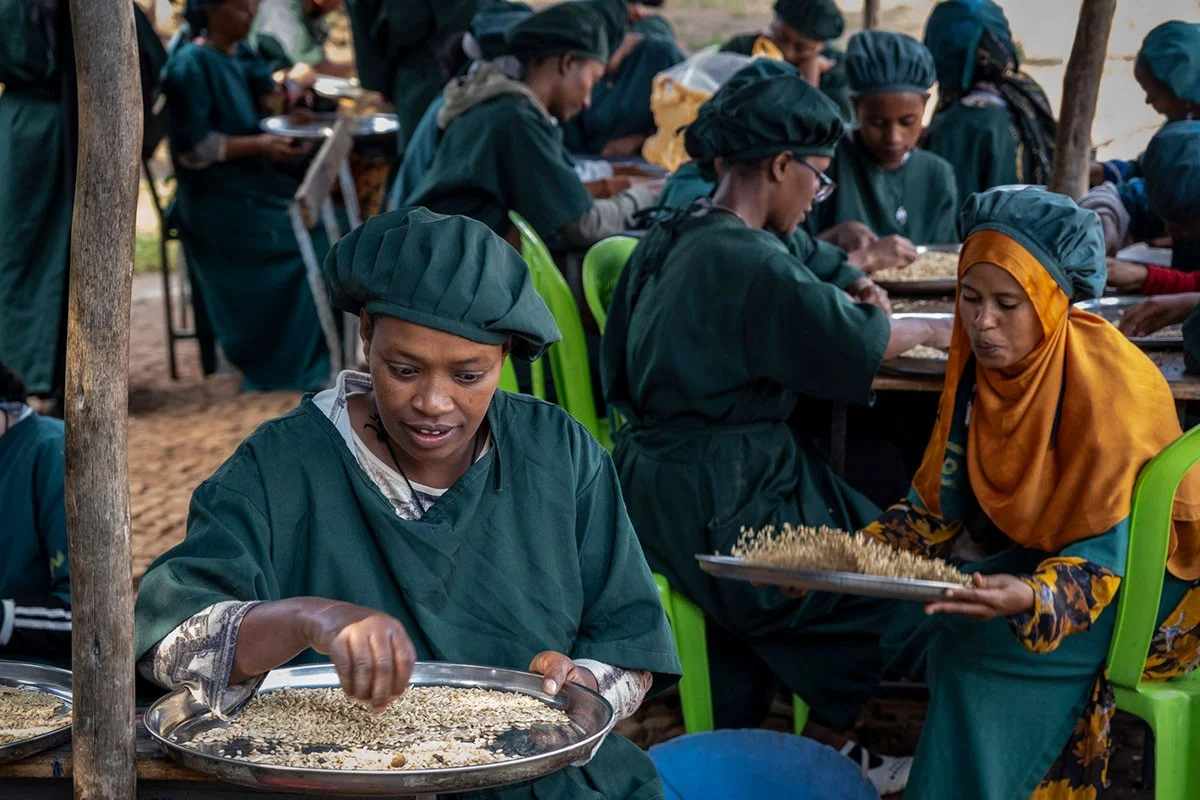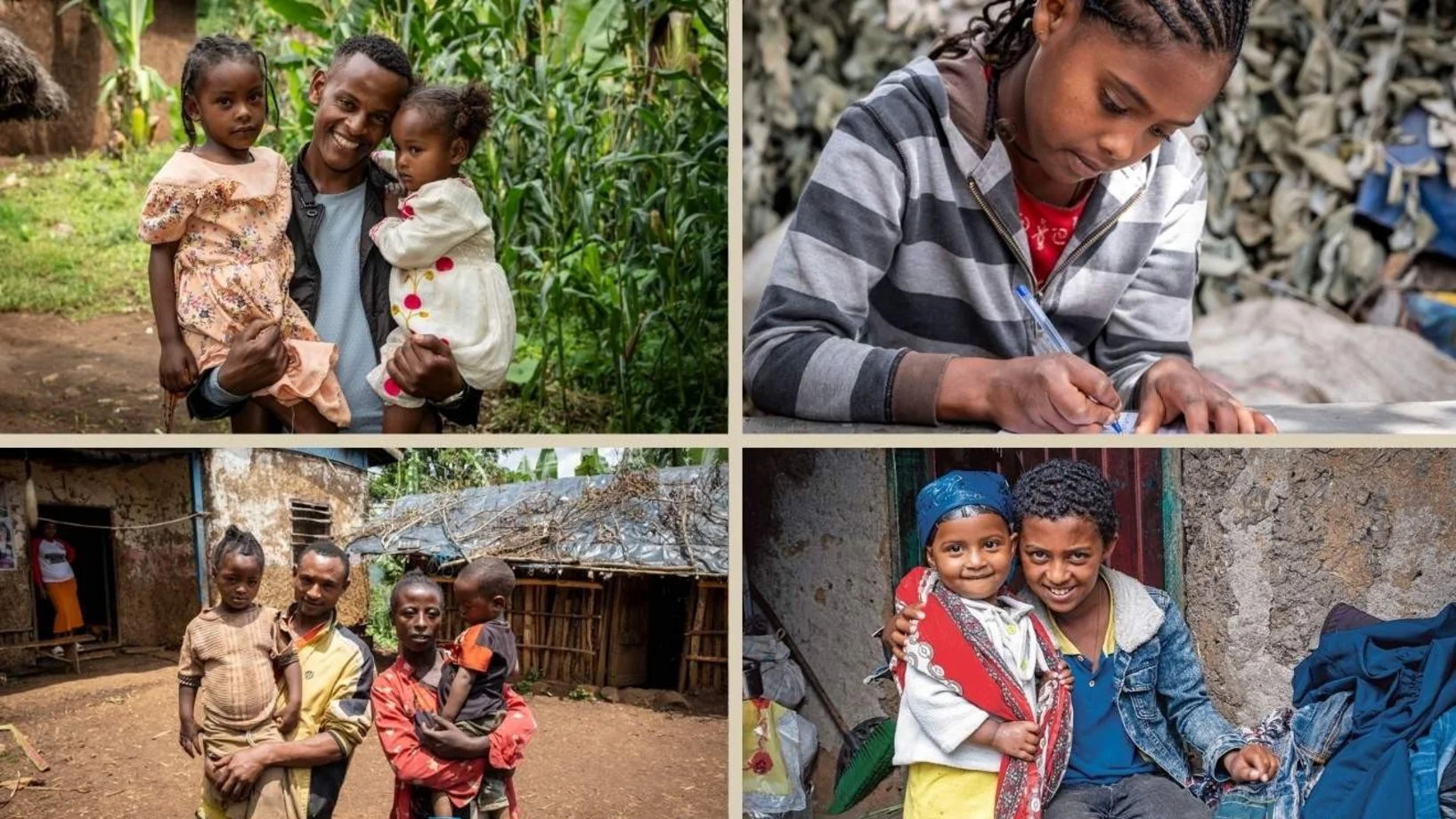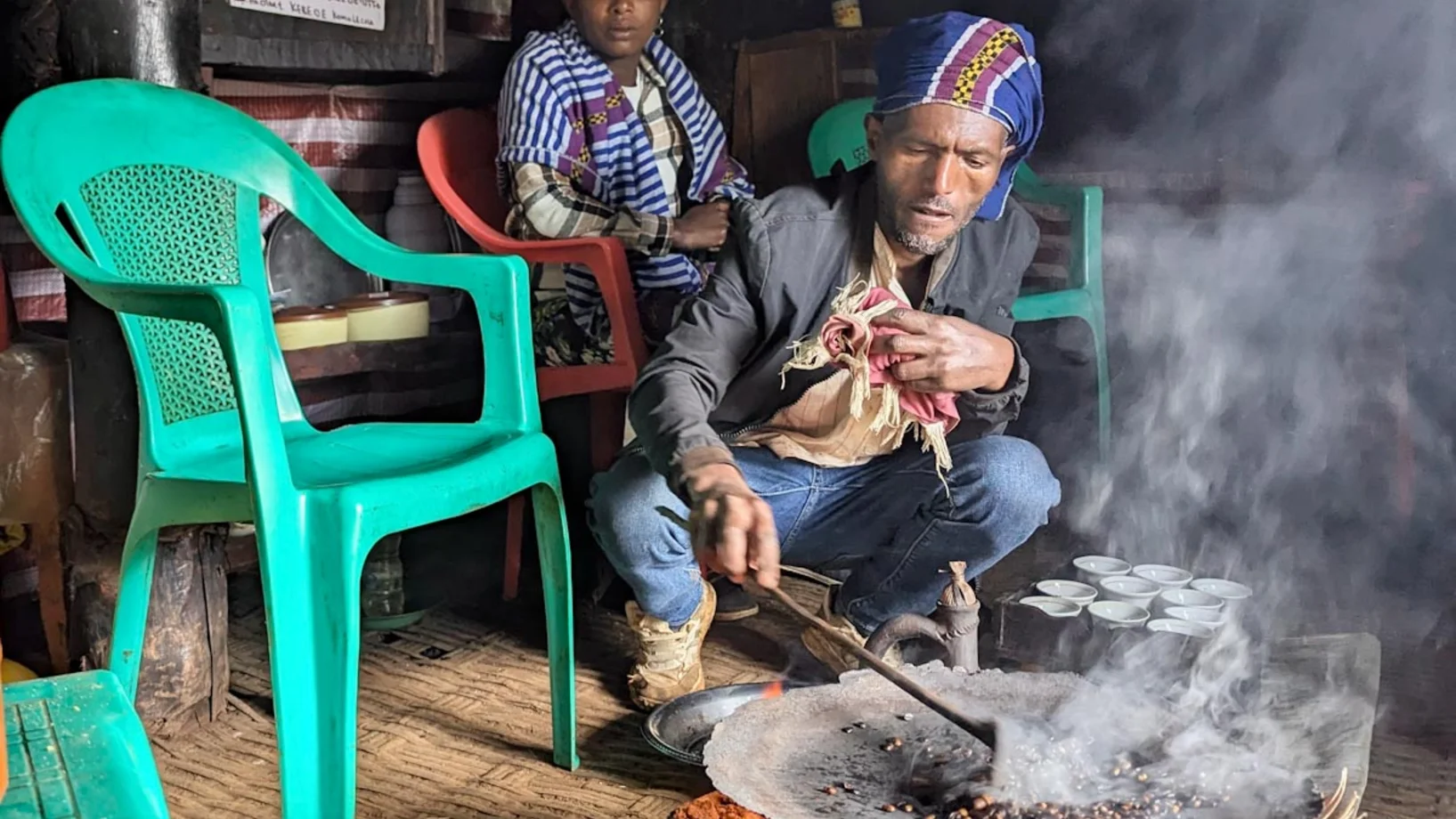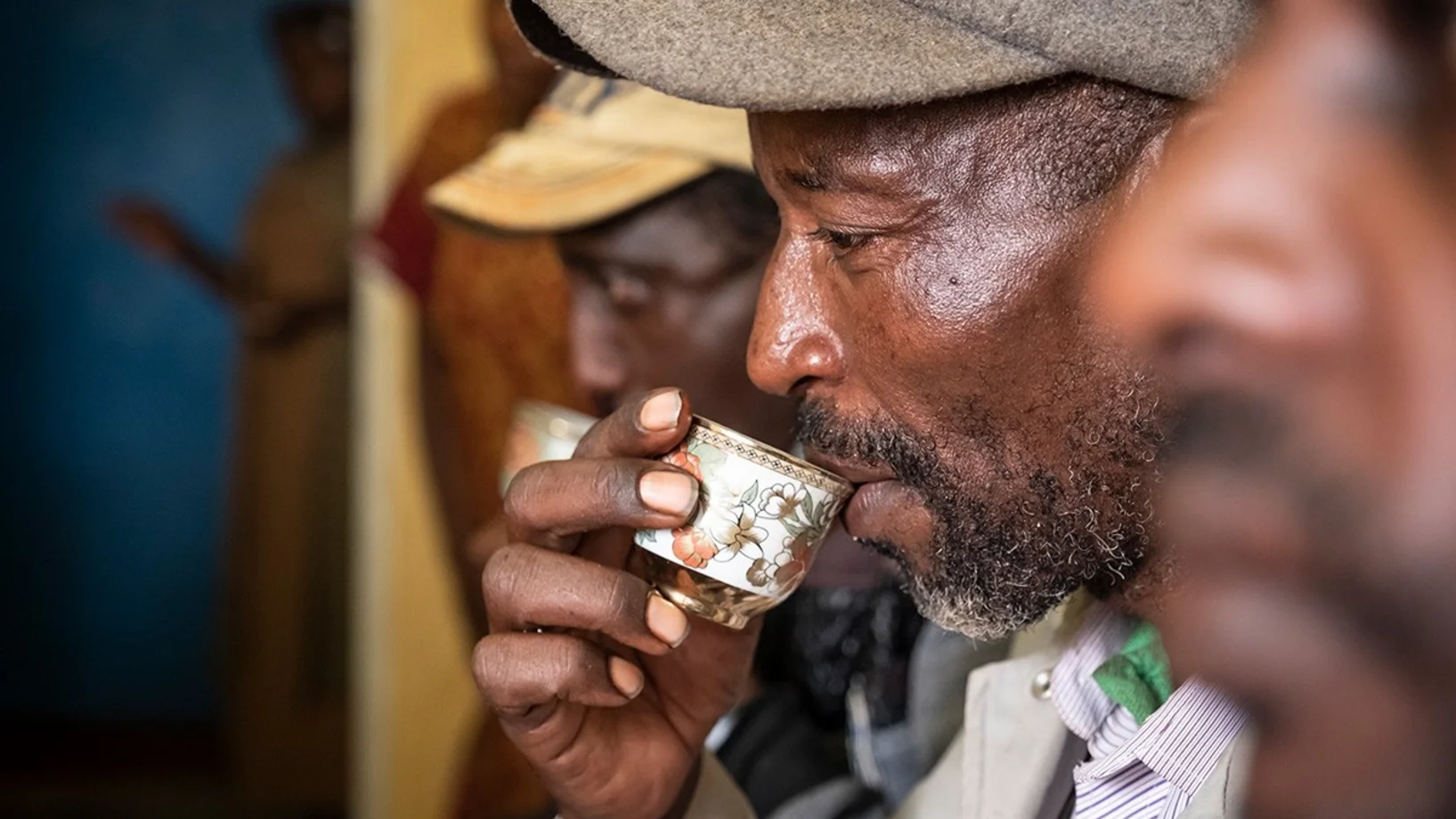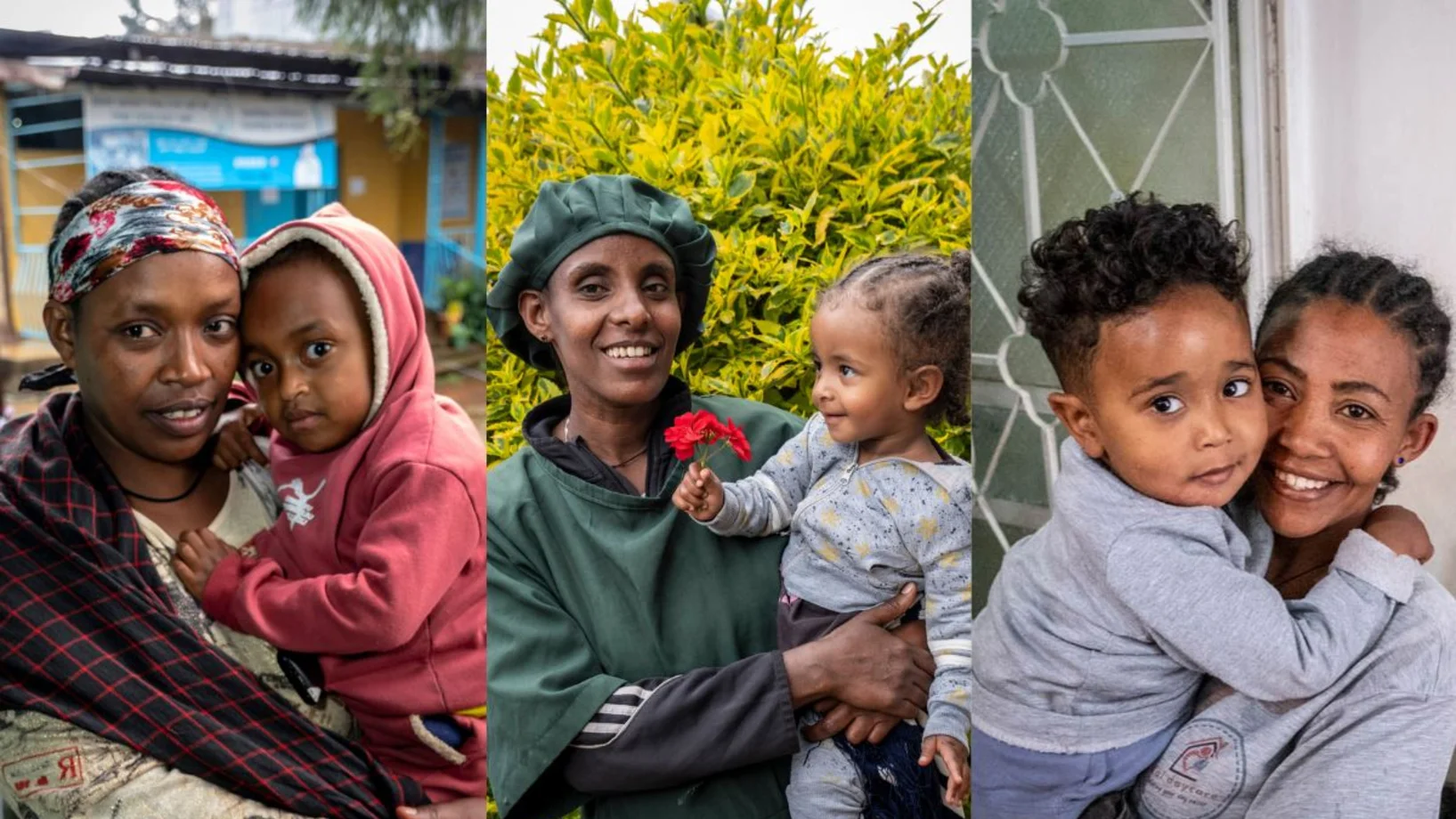Zurich / Addis Ababa, August 7, 2025 - She is still a child when she has to carry sacks of cement. Later, Aster Kata works under exploitative conditions in houses in Beirut. Today, at the age of 31, she holds an official certificate in her hand for the first time. Together with 149 other women, she is celebrating the completion of her training - and the start of a better life for herself and her daughter Hiwot.
Aster Kata began working as a day laborer on construction sites in Ethiopia's capital Addis Ababa at the age of 13, lugging heavy sacks of cement up the stairs of building shells - for ten years. Then she goes to Lebanon. In Beirut, she works in households, seven days a week, for 100 dollars a month. The placement agency collects part of her wages. After four years, she returns to Ethiopia exhausted.
She falls in love and becomes pregnant - but the relationship fails. The child's father is a drunkard and she leaves him. From then on, she ekes out a living as a laundress - with her little daughter Hiwot on her back: a girl with big, astonished eyes. There is rarely enough money for both of them. Aster saves on her own food so that Hiwot gets more.
"I was desperate," says Aster Kata. When she talks about her life, tears come to her eyes. "But then I heard about this home economics training." She applies to the Menschen für Menschen vocational training program - and gets a place. Hiwot is looked after in a crèche during the course. Six months later, Aster Kata is sitting at the graduation ceremony - and with her certificate, she has a perspective in her hand for the first time: "With God's help, I will make it!"
A day of joy
If you want to help the children, you have to help the mothers - this is the principle on which the vocational training program is based. Only women in particularly difficult situations are accepted - with biographies similar to that of Aster Kata. But today is a day of joy: 150 women celebrate their graduation with dance and theater at the training center of the partner organization Abebech Gobena Charity (Agocha) in Addis Ababa. Agocha's specialists train the women on behalf of Menschen für Menschen. The graduates are now trained in housekeeping, cooking, hygiene and childcare - and have skills in budget planning, self-organization and teamwork.
"For example, I learned how to prepare a healthy meal with just a few ingredients - and how to look after small children professionally," says Aster Kata. For her, the training means much more than specialist knowledge: "I have learned to work with others, to take responsibility and to believe in myself." During the lessons, her daughter Hiwot was looked after in the training center's crèche.
Record number of female graduates
"The number of 150 female graduates is a particular success," said Getachew Zewdu, Country Representative of Menschen für Menschen, at the event. "Never before have we been able to release so many women at once into a better future." Thanks to Menschen für Menschen, a total of 2155 women have completed the training so far.
The demand for qualified domestic workers is growing in the Ethiopian capital - especially in childcare. More and more authorities and companies are setting up crèches and kindergartens for the children of their employees. Private facilities are also booming - and the demand for trained staff is correspondingly high.
The speeches of former participants showed how concretely the training opens doors: Genet Siyum, who graduated a year ago, now works as a chef in a large hotel - for a starting wage of 7,000 Birr (the equivalent of around 42 francs). Zufan Legesse, who graduated in mid-2024, was taken on by a public daycare centre immediately after her graduation and earns 9,000 birr (53 francs). In the past, women were day labourers and earned less than half that amount.
Training opens doors
These individual successes are also reflected in the statistics: of the 147 women who graduated at the beginning of 2025, 96 have already found employment - in daycare centers, hotels or restaurants. There are also others who have become self-employed - for example with a small catering service. Aster Kata also already has plans. "Once I've saved up a little start-up capital, I'd like to open a street snack bar," she says. "But first I'll look for a job in a hotel kitchen. Then in three years, I'll start my own business!"
About the Menschen für Menschen Foundation
Menschen für Menschen is committed to fighting poverty and hunger. The foundation was established by the actor Karlheinz Böhm (1928 - 2014). In the spirit of its founder, the Swiss aid organization creates prospects for the poorest families in Ethiopia. The aim of the work is to enable them to live in dignity in their home country. The individual projects focus on promoting women, vocational training, microcredits, child aid, family planning and agricultural development. The components are combined according to local needs and implemented with carefully selected local partners.
Download the picture in HD quality and the media release (in German) as PDF here:
